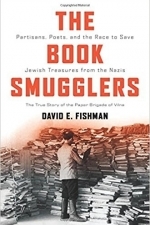
Faces from the Front: Harold Gillies, the Queen's Hospital, Sidcup and the Origins of Modern Plastic Surgery
Book
Faces from the Front examines the British response to the huge number of soldiers who incurred...

Lonely Planet Devon & Cornwall
Lonely Planet, Belinda Dixon and Oliver Berry
Book
Lonely Planet: The world's leading travel guide publisher Lonely Planet Devon & Cornwall is your...

Lonely Planet USA
Regis St. Louis, Lonely Planet, Amy C. Balfour and Sandra Bao
Book
Lonely Planet: The world's leading travel guide publisher Lonely Planet USA is your passport to the...

The Book Smugglers: Partisans, Poets, and the Race to Save Jewish Treasures from the Nazis
Book
The Book Smugglers is the nearly unbelievable story of ghetto residents who rescued thousands of...
history

The War of the Worlds by H. G. Wells
Podcast
Extraterrestrial invasion, the earth taken over by omniscient intelligences from Mars, the whole of...

Hello World: Where Design Meets Life
Book
Hello World is Alice Rawsthorn's definitive guide to design and modern life Design is one of the...

The Oxford English Literary History: Volume 1: 1000-1350: Conquest and Transformation
Book
The Oxford English Literary History is the new century's definitive account of a rich and diverse...
The Oxford History of the Novel in English: Volume 1: Prose Fiction in English from the Origins of Print to 1750
Book
The Oxford History of the Novel in English is a 12-volume series presenting a comprehensive, global,...
Guy Garvey recommended Catalpa by Jolie Holland in Music (curated)
Gareth von Kallenbach (980 KP) rated Free Fire (2017) in Movies
Jul 11, 2019
It may say Scorsese’s producing, but Free Fire definitely smacks more of a Tarantino-influenced affair and I can think of no better example, in recent years anyway, that proves the lasting legacy of his still awe-inspiring debut, Reservoir Dogs. After years of making deliberately obtuse films (High Rise, A Field in England), Ben Wheatley has finally made something accessible, but unfortunately, Free Fire can’t pack the same visceral punch and narrative competence as the films that it takes influence from. I’m having flashbacks to about this time last year when I reviewed another film from A24, Green Room. I walked out of Free Fire in much the same manner; on a high, feeling satisfied from what appeared to be something unique and notable. As the hours have passed and I’m preparing my summation, the sentiment has all but vanished and I’m wanting of something with a little more substance. Granted, an 90 minute runtime can only accommodate so much, but I have to ask: could all that time spent crawling around in the dust and the rubble, as realistic a light that it may or may not shine on the authenticity of an actual shootout, have been used instead to get inside our characters motivations, driving us to really care about their fates? There’s no doubt that from its style and attitude, there was the potential for this to be the Reservoir Dogs for a new generation, but ultimately it’s just not a very memorable experience.
What will save Free Fire from obscurity is a cast that, despite having little plot to work with, is firing on all cylinders. An exemplary job is done from Oscar winners on down to character actors whose faces you know, but names you don’t. There isn’t one weak link in the chain and their performances have an excellent balance of toughness and levity that grounds them just enough to allow for suspension of disbelief. I might chastise Ben Wheatley as a storyteller, but there’s no doubt that he has an ear for great dialogue and fine judgement on the performers to deliver it.


